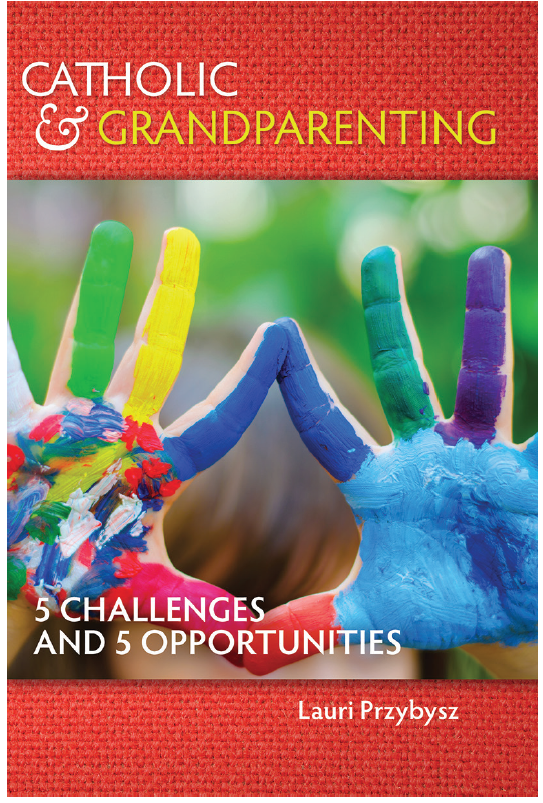The Synod on the Family explored appropriate pastoral care for families in irregular unions.[1] Currently, 60 percent of all marriages are preceded by cohabitation, but fewer than half of cohabiting unions end in marriage.[2] Many of these relationships include children. Catholic families need to know that it is charitable to be patient with such couples and encourage them to move toward marriage. They should not be shunned or discouraged from participating in the life of the family. Marriage preparation can have a positive impact on these couples. Parishes could hold ritual blessings for engagements. Catholic colleges, campus ministries, and Newman Centers could offer courses in healthy relationships and communication skills.
Among single Catholics who believe they may marry in the future, 72 percent indicate that it is of some importance to them that they be married within the Catholic Church, according to the CARA study.[3] Active parishioners, by modeling loving marriage, could attract these couples to consider marriage. They could include them in parish social events and invite them to participate in outreach to the poor. Diocesan and parish staffs should welcome couples inquiring about weddings with warm and non-judgmental attitude. We need to minimize obstacles to getting married in the Church by limiting fees and unwieldy policies.[4]
Twelve percent of Catholics in the CARA study are divorced, and 1 percent are currently separated. Only 15 percent of divorced Catholics have sought an annulment.[5] When they want to be part of our faith community, these families also deserve pastoral care.[6] We must educate Catholics that divorce does not mean excommunication, and hold information sessions about the tribunal process so that more divorced persons will apply for annulments. Dioceses could include married persons in tribunals and involve married persons as advocates. Parishes need to welcome civilly-married and remarried couples and their children into parish prayer experiences, faith formation, and service projects.
Single parents may be among the most active parish members, or they may be on the margins of the community. Less than half (46 percent) of U.S. children younger than 18 years of age are living in a home with two married heterosexual parents in their first marriage. 34% of children today are living with an unmarried parent—up from just 9% in 1960, and 19% in 1980.[7] The faith community could assist single parents with childcare and material assistance when needed. Single parents and their children should be encouraged to participate in faith formation and preparation for children’s sacraments.
About one-quarter of Catholic marriages are mixed-Church or mixed faith. Seventy-two percent of married Catholics have a Catholic spouse. We should assist families in mixed-religion marriages to succeed by providing opportunities to be true leaders of their families in spiritual matters at home. Christian spouses of different faith traditions can learn about the baptismal foundation of their domestic church. Diocesan leaders should promote dialogue among churches and religions, finding common ground around family life and values. Community faith leaders could offer ecumenical prayer services and invite these families to help organize them. [8]
The Synod on the Family also is also discussing pastoral care for homosexuals and their families.[9] We should promote prayer and outreach that is inclusive of all persons, whatever their personal issues. Help families to focus on caring for others less fortunate, allowing all family members to work together for the common good. Build loving communities in which all find friendship and meaningful healthy relationships. Parishes should also develop support programs for parents of gay children, and same-sex couples and their children should be included in parish life without discrimination. We must work for just and respectful church and civic policies for all minorities.
[1] Synod of Bishops, LIneamenta, 2014, no. 37.
[2] USCCB, For Your Marriage website, “Cohabitation.” http://www.foryourmarriage.org/catholic-marriage/church-teachings/cohabitation/ (accessed March 6, 2015).
[3] Center for Applied Research in the Apostolate, Marriage in the Catholic Church: A Survey of U.S. Catholics. Georgetown University, Washington, D.C., October 2007, http://cara.georgetown.edu/MarriageReport.pdf
[4] Synod of Bishops, Lineamenta, 2014, no. 40.
[5] Center for Applied Research in the Apostolate, October 2007, Ibid.
[6] Synod of Bishops, Lineamenta, 2014, no.54.
[7] Pew Research Center, “Less than Half of US Kids Today Live in a Traditional Family,” Gretchen Livingston, December 2014, http://www.pewresearch.org/fact-tank/2014/12/22/less-than-half-of-u-s-kids-today-live-in-a-traditional-family/
[8] Synod of Bishops, Lineamenta, 2014, no. 53.
[9] Synod of Bishops, no. 50.










